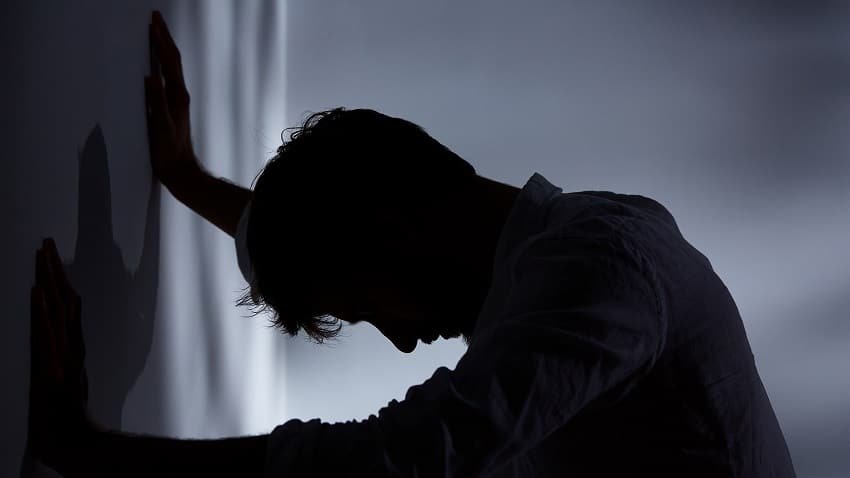What exactly is depression?
Major depression is classified as a feeling condition. It may be described as feelings ofsadness and loss. Alternatively, anger that interfere with a person’s everyday activities.
It is also fairly common. The Facilities for Condition Control and Prevention (CDC)Trusted Resource quotations that 8.1 percentage of American grown ups grows older 20 and over possessed depression in virtually any presented 2-few days period of time from 2013 to 2016.
Men and women practical experience depressive disorders in a different way. It could interfere with your day-to-day work, leading to shed efforts and lower productivity. It can also effect relationships and some long-term medical conditions.
Conditions that could get even worse as a result of despression symptoms incorporate:
- joint inflammation
bronchial asthma
cardiovascular disease
cancers
diabetes
excessive weight
It is crucial that you recognize that feeling lower from time to time can be a normal a part of existence. Unhappy and disturbing situations eventually everyone. If you’re feeling down or hopeless on a regular basis, you could be dealing with depression, but.
Major depression is recognized as a significant medical condition that will go downhill without correct treatment method. Those that seek out treatment method usually see improvements in signs in a few weeks.
Depressive disorders signs and symptoms
Major depression may be over a constant condition of unhappiness or feeling “blue.”
Main depressive disorders might cause various symptoms. Some impact your feeling, and others have an impact on your whole body. Symptoms may also be ongoing. Alternatively, come and go.
The signs of depression might be experienced in different ways amongstmen and women, and kids in a different way.
Guys can experience symptoms relevant to their:
- mood, including anger, aggressiveness, irritability and anxiousness uneasiness
mental properly-getting, including sensation vacant, unfortunate, weak
habits, for example loss of curiosity, will no longer discovering delight in favorite activities, experiencing tired easily, opinions of suicide, ingesting overly, making use of medications, participating in great-risk activities
sexual interest, such as reduced sexual interest, insufficient sexual efficiency
mental skills, for example lack of ability to concentrate, trouble finishing tasks, postponed replies while in conversations
sleep at night styles, like sleeplessness, stressed sleep, abnormal sleepiness, not sleeping throughout the nighttime
bodily well-getting, for example fatigue,headache and pains, digestive system issues
Women may experience symptoms relevant to their:
- frame of mind, like becoming easily irritated
psychological well-becoming, including feeling unfortunate or bare, stressed or weak
habits, including loss of interest in routines, withdrawing from sociable engagements, feelings of suicide
cognitive abilities, for example pondering or speaking slower
sleep at night styles, for example trouble slumbering throughout the nighttime, waking earlier, getting to sleep too much
physical well-being, like reduced electricity, greater tiredness, alterations in desire for food, body weight aches, headaches, changes and pain increased cramping pains
Kids may suffer symptoms linked to their:
frame of mind, such as becoming easily irritated, anger, swift changes in moods, crying
emotionally charged properly-getting, like sensations of incompetence (e.g. “I can’t do anything whatsoever right”) or lose faith, crying, strong unhappiness
behavior, including entering into issues at school or declining to attend school, steering clear of friends or brothers and sisters, feelings of passing away or suicide
cognitive capabilities, like issues focusing, decrease in class functionality, modifications in grades
sleep designs, including problems sleeping or slumbering excessive
actual physical properly-getting, including loss of power, digestive system issues, modifications in hunger, weight reduction or obtain
alcohol and Depression
Research has founded the link between alcohol depression and use. Those who have depressive disorders are more likely to improper use alcoholic drinks.
Out of your 20.2 thousand U.S. grown ups who seasoned a product use condition, about forty percent enjoyed a cooccurring mental health issues.
63.8 percentTrusted Source of people who are alcohol dependent have depression, according to a 2012 study.
Alcohol consumption commonly can certainly make symptoms of depression even worse, and people who have despression symptoms will probably improper use alcoholic beverages or grow to be dependent on it.
Outlook for depression
Depression can be temporary, or it can be a long-term challenge. Therapy doesn’t generally help make your depression go away completely.
Treatment often makes symptoms more manageable, however. Controlling symptoms of despression symptoms consists of choosing the best combination of medications and therapies.
Talk with your healthcare provider if one treatment doesn’t work. They will help you create a distinct treatment solution that could are more effective to help you control your trouble.

